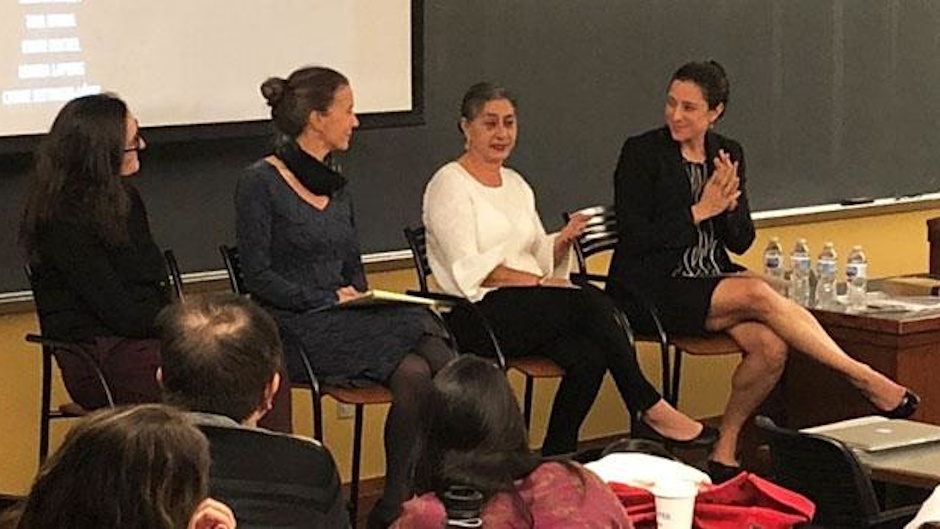Ryan Rizzo and Roman Rodriguez-Tejera, second-year students from the Human Rights Clinic, traveled to Colorado over Fall break with Professor Carrie Bettinger-Lopez, and forensic science expert Peter Diaczuk, to get to the bottom of a burning question: How, when, and where did their client’s children die?
The Human Rights Clinic represents Jessica Lenahan, a Colorado mother whose three daughters were killed in 1999 after police failed to enforce her restraining order against her estranged husband. Lenahan fought this injustice by taking her case all the way to the United States Supreme Court and, after losing there, the Inter-American Commission on Human Rights, where, in 2011, she prevailed against the U.S.
Among its many findings and recommendations, the human rights commission found that the deaths of Rebecca, Katheryn, and Leslie Gonzales were never thoroughly investigated and that Colorado authorities should open an investigation into the time, manner, and circumstances of their deaths.
The investigation was not undertaken and the Human Rights Clinic decided – as many human rights lawyers do -- that the government needed a push. The clinic students developed an itinerary that took them from Denver to Castle Rock to Boulder, for meetings with a variety of Colorado stakeholders: the Douglas County Sheriff’s Office, the Office of the District Attorney for the 18th Judicial District, the Colorado District Attorney’s Council, and local domestic violence advocates. The students went with the goal of building positive relationships with leaders in Colorado, to push forward on the goal of getting an investigation underway, and ultimately, to bring closure to Lenahan on a tragedy that has haunted her for almost two decades.
Perhaps the most significant outcome from the meetings, besides building positive relationships with law enforcement and government officials, was the discovery of previously undisclosed and preserved evidence. Diaczuk, who also wrote an expert report about the evidentiary failures in Lenahan’s case, is now poised to analyze the evidence and supplement his previous findings.
The trip to Colorado brought the group to non-law enforcement spaces as well. They toured the Rose Andom Center, a Denver-based organization dedicated to improving the lives of domestic violence victims by facilitating access to government organizations and social services. They also traveled to Boulder to screen the film Home Truth, a documentary about Lenahan’s case, at the University of Colorado Law School. The next day, they attended the 169th Session of Hearings of the Inter-American Commission on Human Rights, which was, coincidentally, being hosted by Colorado Law.
On the last evening, Lenahan and Bettinger-Lopez were both honored at a “Champions for Change” event sponsored by the University of Colorado’s Center on Domestic Violence in Denver, bringing together community leaders from all over Colorado.
As students of the Human Rights Clinic look towards their next steps, they are focused on following the promising new leads that were discovered and continuing to work with Colorado authorities to find the answers that their client, Lenahan, desires and deserves.
The Human Rights Clinic is part of Miami Law’s Clinical Program, in which law students work for the promotion of social and economic justice globally and in the U.S.

